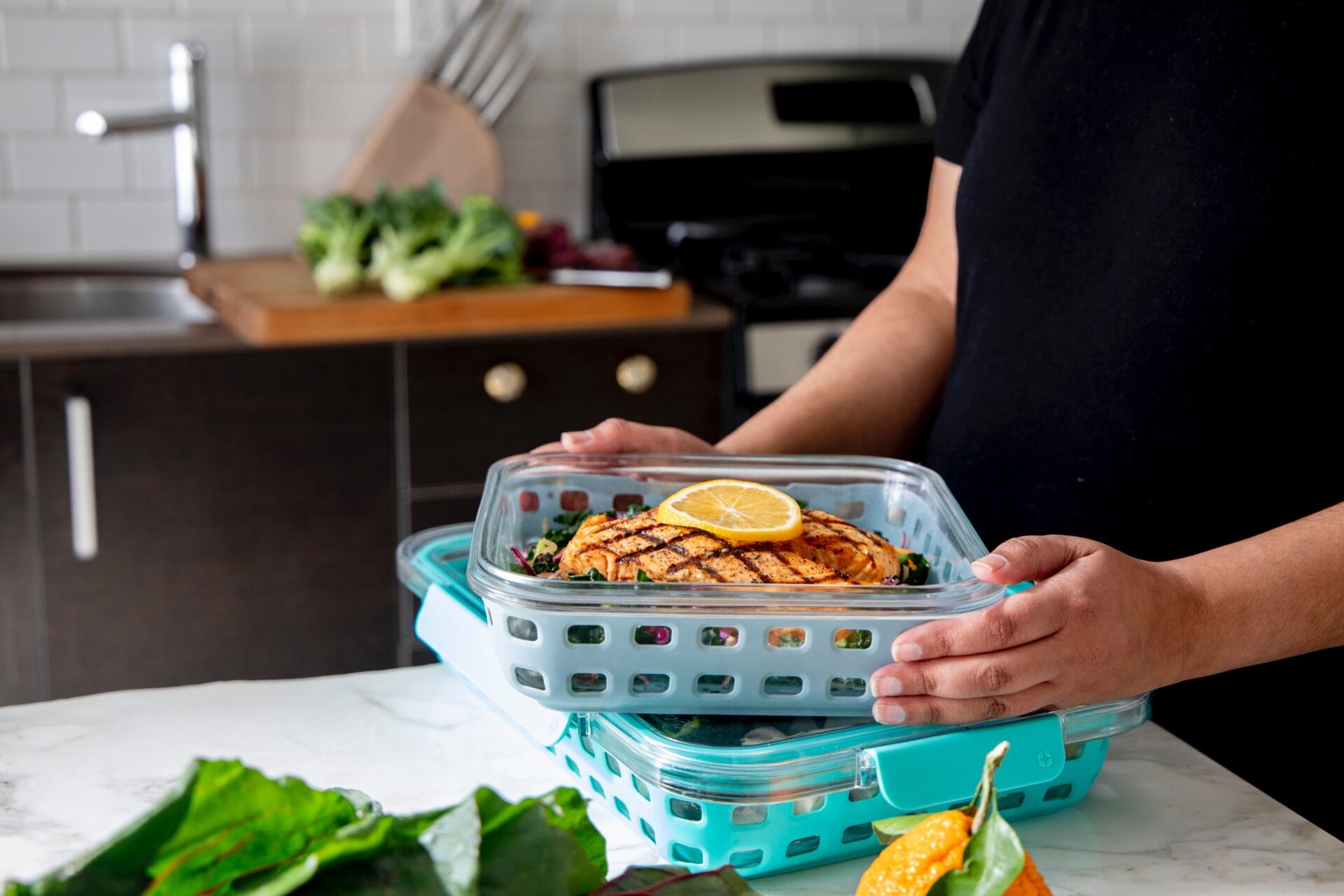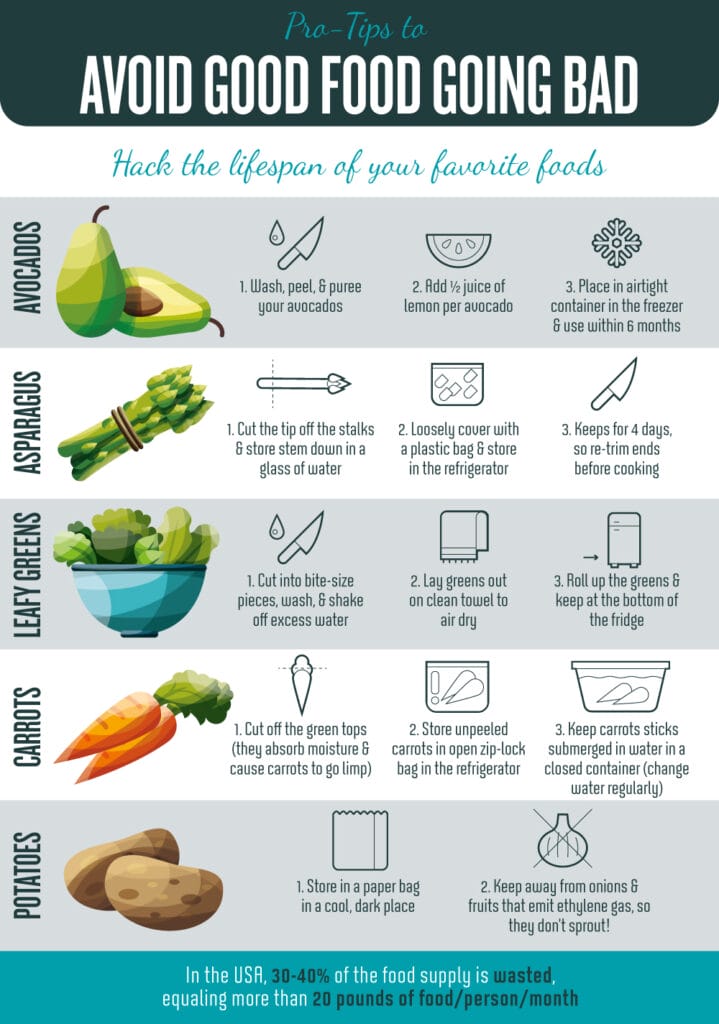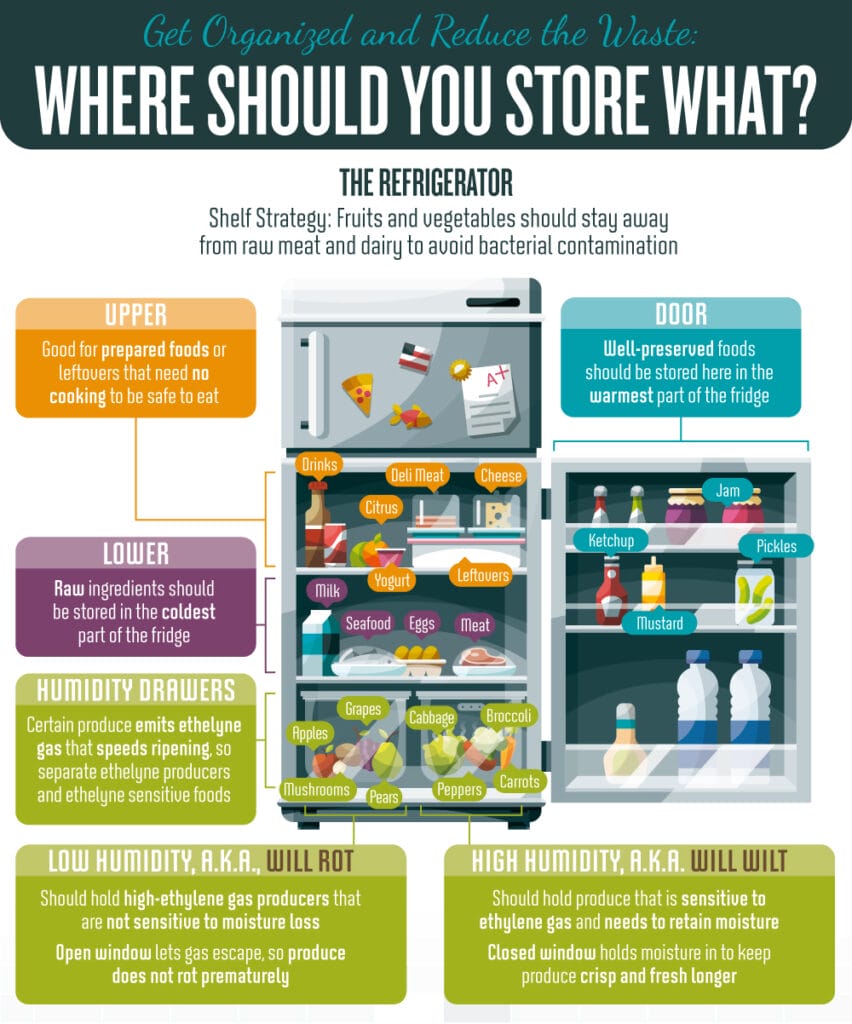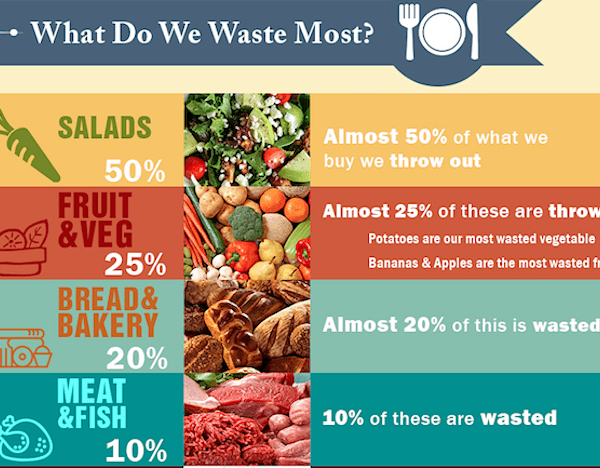
Food storage and organization
Taking inventory is easier when you’re organized!
Take a listen
Let’s start out with our third podcast, where we’ll discuss why proper food storage is an important tool for reducing food waste:
Take a look
Check out these videos and learn about food storage to reduce food waste!
View infographics



Take action
The takeaway
How you store your food can have a big impact on how quickly it goes bad, so protect it from the causes of spoilage with proper storage. As a bonus, organization can help you keep better track of what you have on hand and what needs to be used up quickly, making it easier to follow strategies for recipes and shopping! Keeping your food properly stored and organized may seem challenging, but if you make a habit of following our tips, you’ll be rewarded with longer lasting and easier to find foods.
- Invest in and use high quality storage containers for a variety of food types and quantities
- Keep inventory of what food you have and use the first-in first out method to rotate stock
- Use your freezer generously, but ensure it’s at 0 degrees Fahrenheit
- Designate some spots for staples in your pantry and fridge to keep it consistent and place items in the proper part of the fridge – milk and dairy in the back veggies and fruits in the crisper
- Properly wrap foods before freezing them and label with what they are and the date
- Protect against air, light, pets, temperature, and bacteria – common causes of spoilage
- Use the first-in, first-out (FIFO) method: stock new purchases in the back so you use older ones first to keep your food stock rotating
Essentials
More specific food storage tips can help ensure your food lasts as long as possible. Try these storage methods for the following foods:
Must-have tools:
- Store dried herbs, spices, flour, and nuts in the freezer to keep them fresh longer
- Save money by buying fruits and veggies on sale, but freeze them in airtight containers with as little oxygen as possible to keep them from spoiling, then use them in soups and smoothies later
- Wrap meat packages in foil to provide protection from freezer burn
- Label everything that goes into your freezer to avoid the mystery frozen foods later!
Helpful resources
Some additional resources can be found at the following websites: